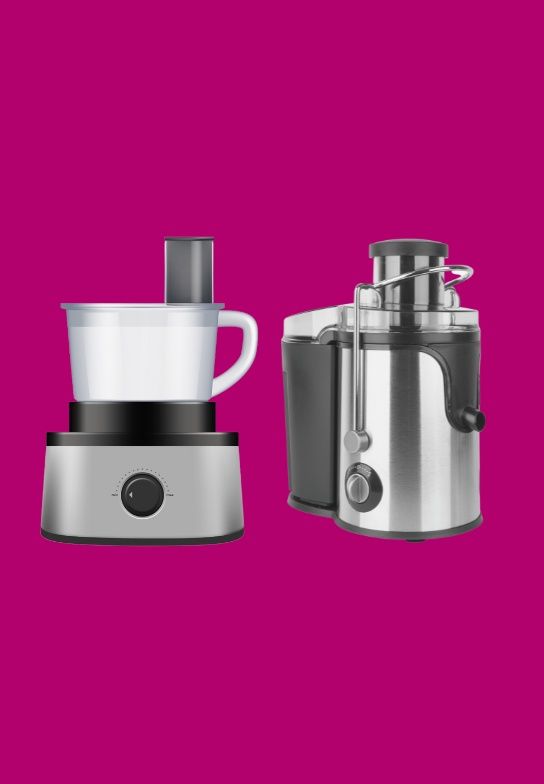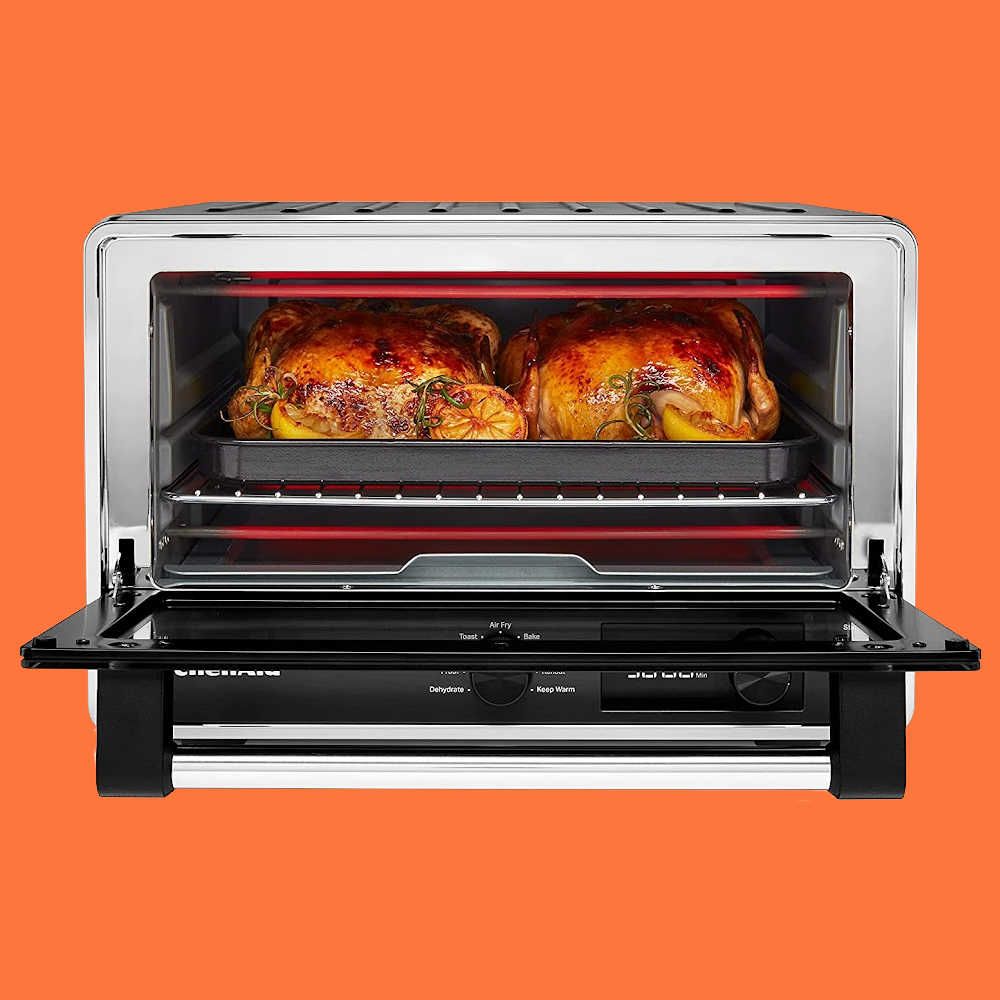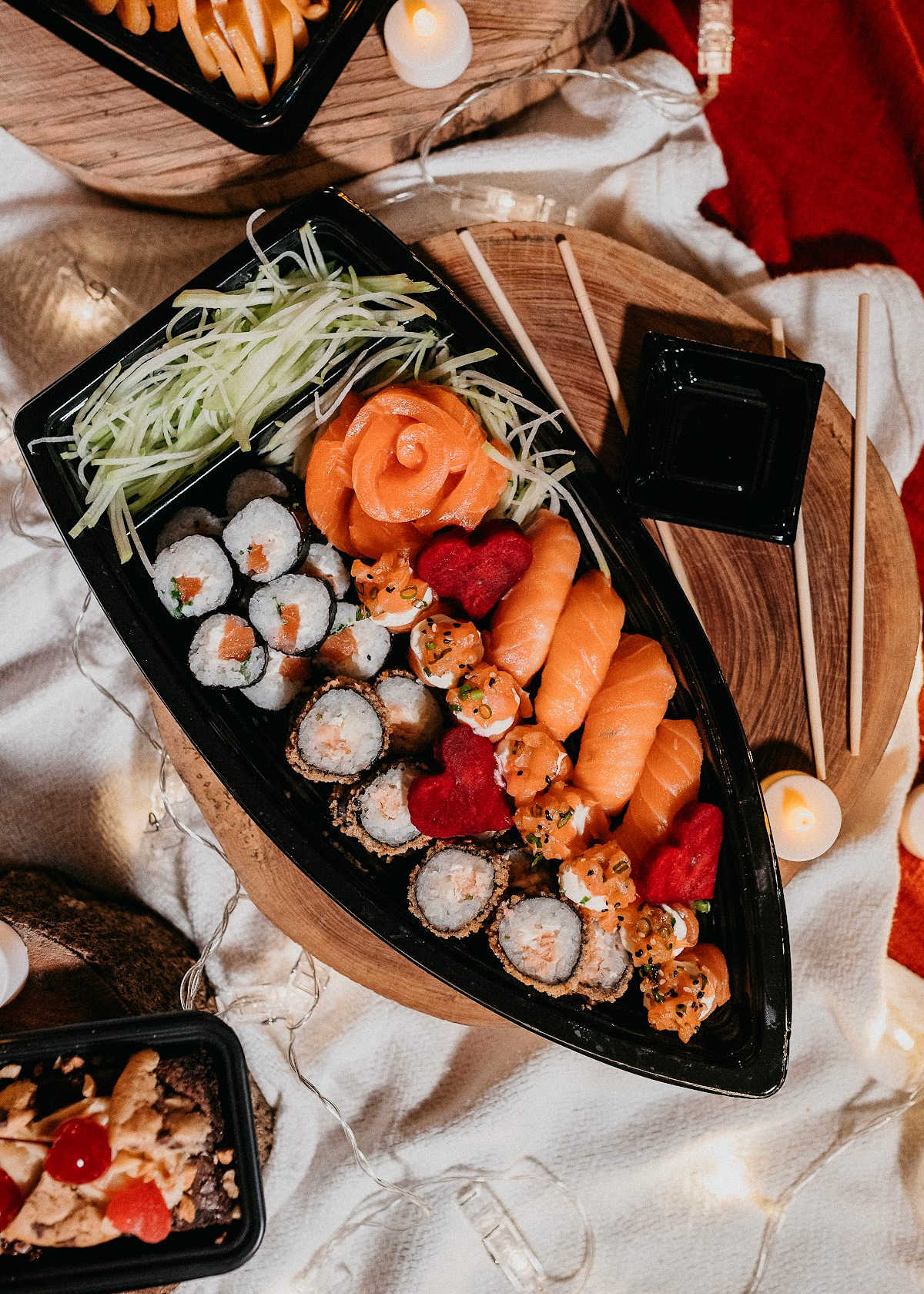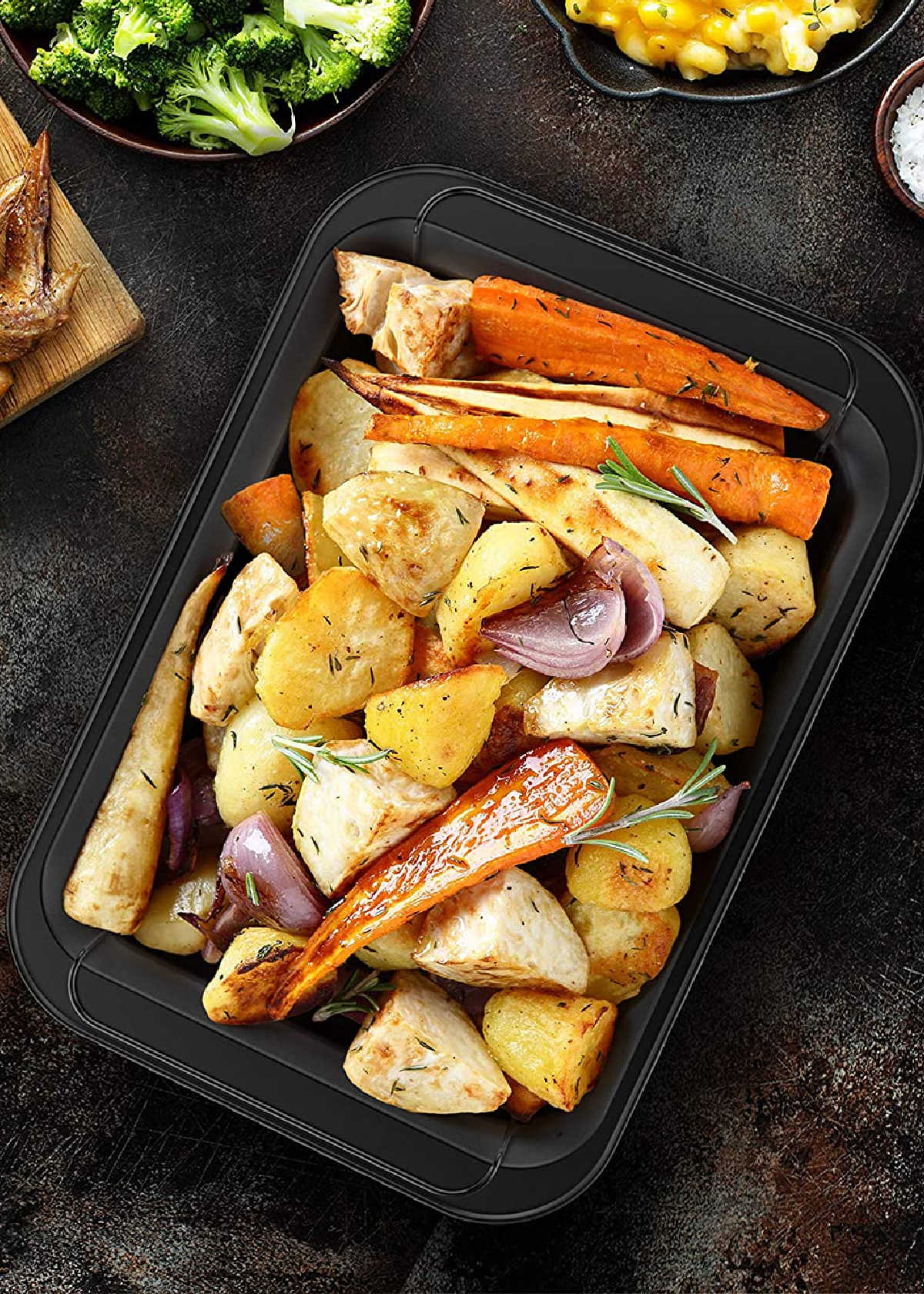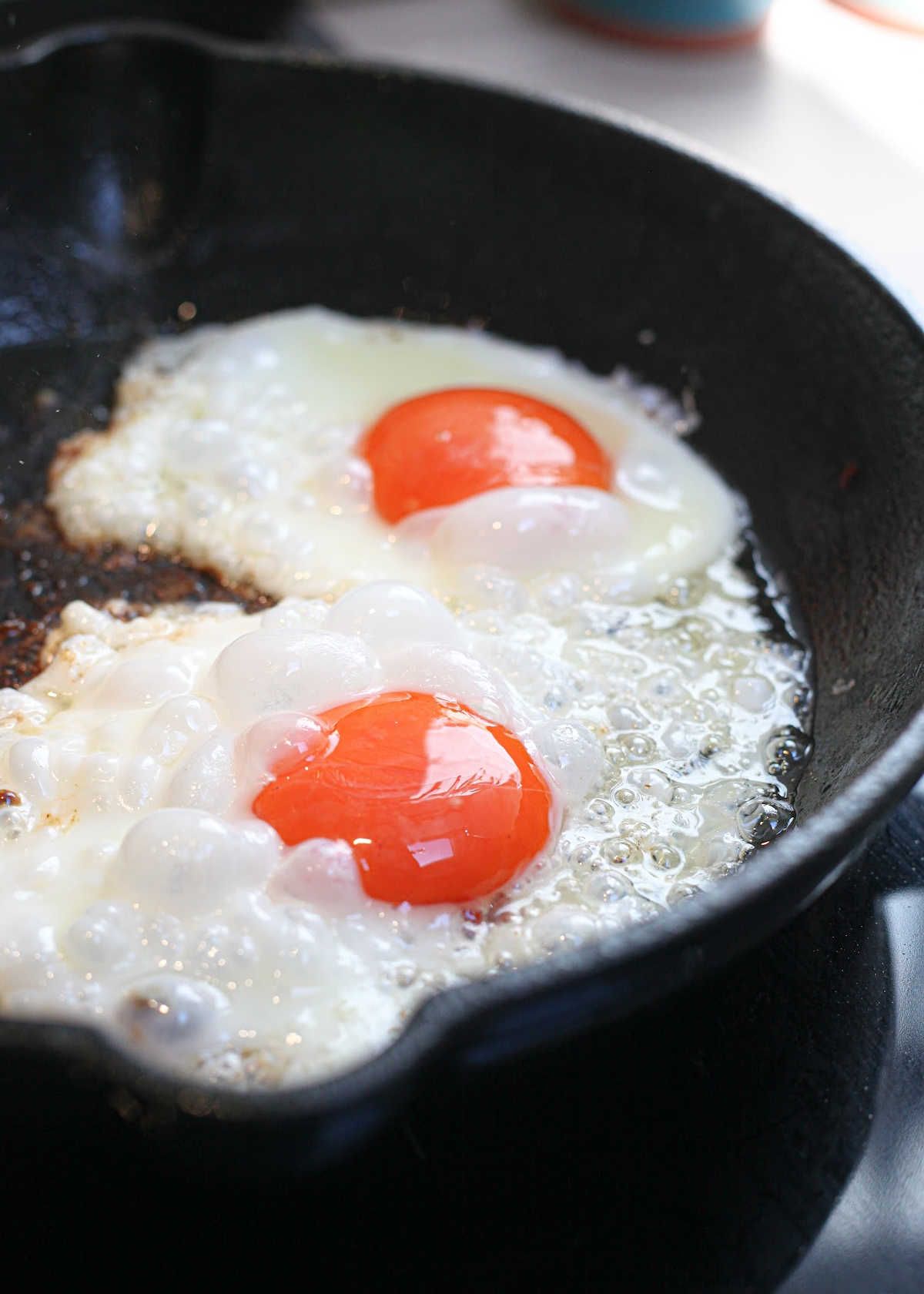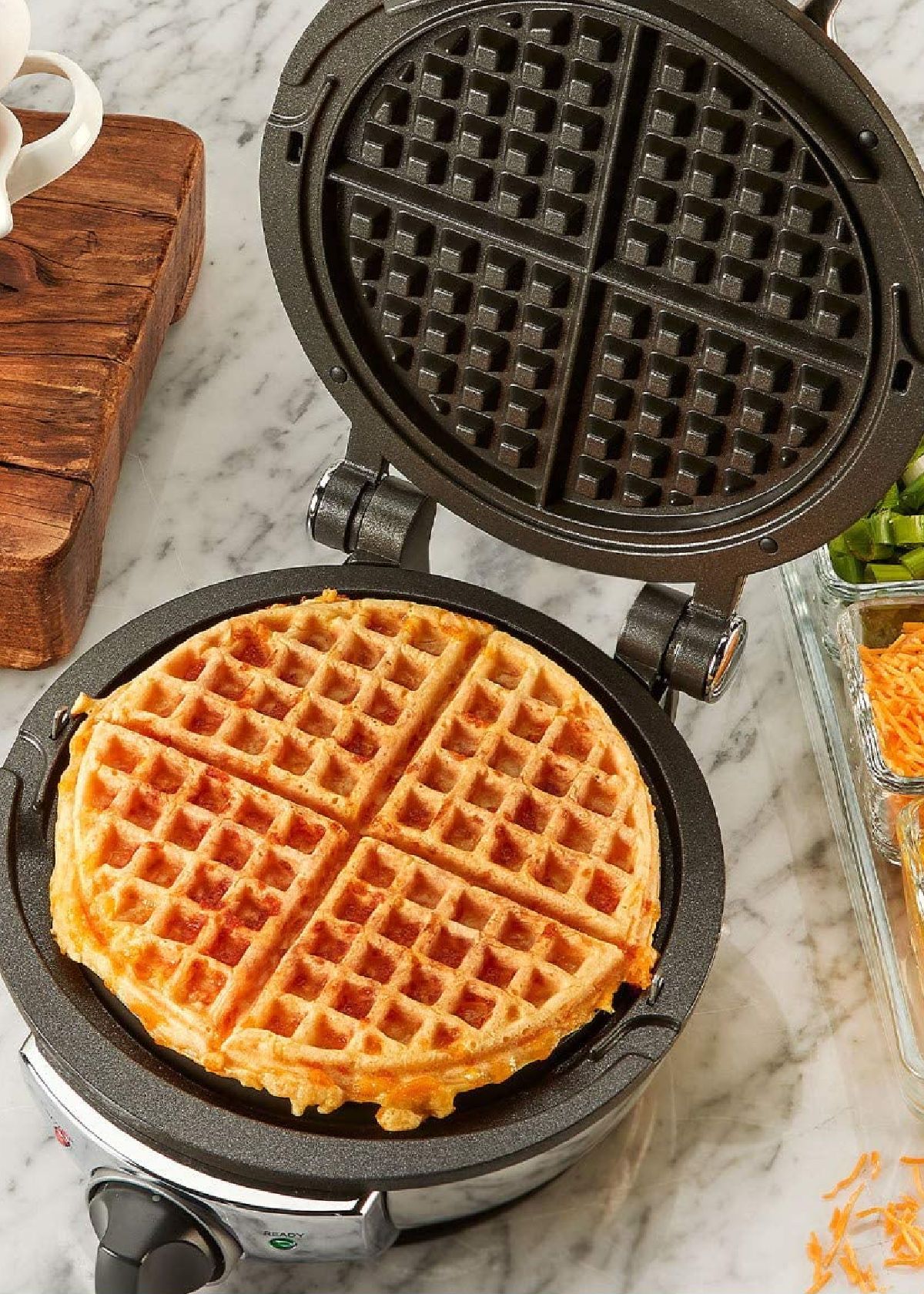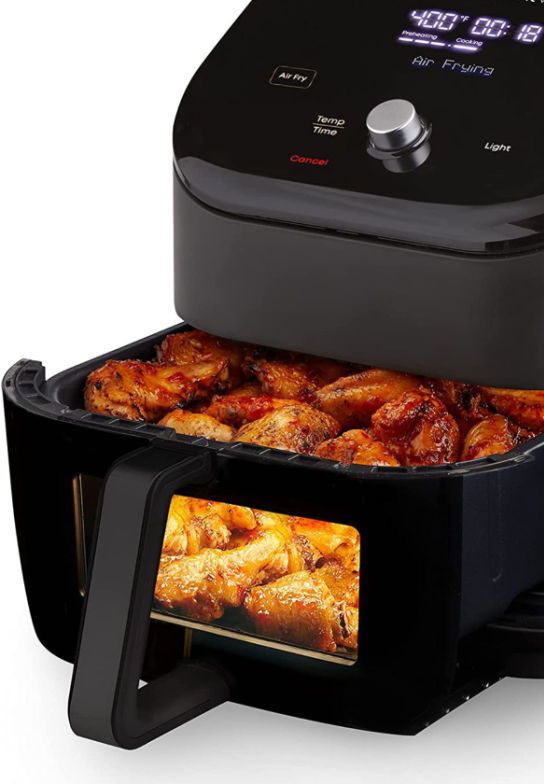Content Summary
Food processors and juicers are two of the most popular kitchen appliances, with both having their distinct purposes. Choosing between the two can be confusing, especially if you want to buy a multi-functional kitchen appliance.
In this guide, we'll be comparing food processors and juicers, their differences, pros and cons, to help you decide on which one to choose depending on your specific requirements.
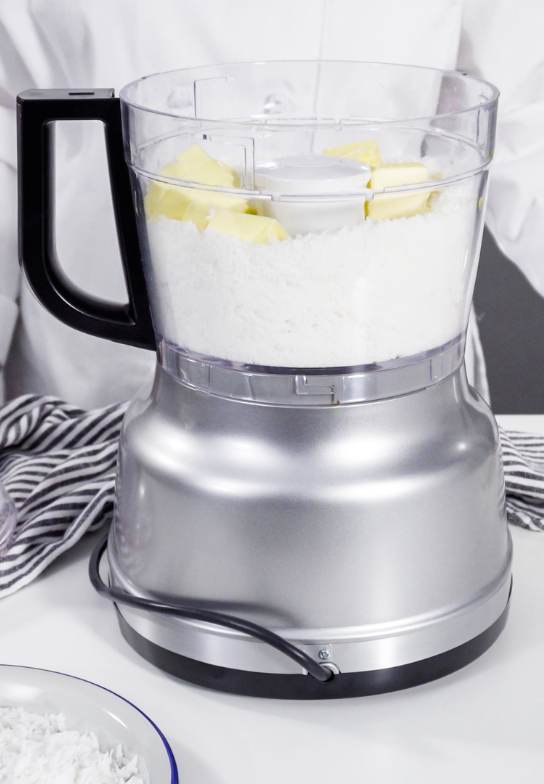

Food Processor & Juicer
Food Processor vs Juicer
The main difference between a food processor and a juicer is its functions. A food processor takes the whole food and processes it into small pieces, while a juicer removes the solid part and extracts only the liquids.
Operations:
- A food processor is designed to handle food by chopping, slicing, dicing, blending, shredding, and mixing. It can process a variety of food items, including soft and hard foods.
- A juicer is designed to extract fresh juice from citrus fruits and hard vegetables.
Outcomes:
- Food processors keep small bits of food intact. They are best for making purees, dips, and sauces.
- Juicers produce clear liquid without pulp. They are best for making fresh and healthy juices.
What Is A Food Processor?
A food processor is a powerful kitchen appliance that blends, purees, shreds, grinds, chops, slices, dices, and mixes food ingredients quickly and efficiently.
- The appliance comes with different blades and attachments that can be used for various tasks.
- There are 3 types of food processors: a manual or electric food chopper, and an electric food processor.
- A manual food chopper or an electric food chopper is used for chopping, and dicing small amounts of food.
- An electric food processor is a more powerful and versatile appliance and can handle larger batches of food with greater speed and accuracy.
- A food processor can handle a variety of food items, from soft to hard, and can process a large volume of food at once.
- You can use a processor to make pastry dough, chop vegetables, puree fruits, shred cheese, grind meat and nuts, make pesto, hummus, and much more.
- It is a multi-functional kitchen appliance that is efficient for meal prep. It saves you time and energy and makes cooking a lot easier.
Note: Some food processors come with an integrated blender, to make smoothies and milkshakes. For some, a question is: which serves my kitchen needs better, a blender or a food processor?
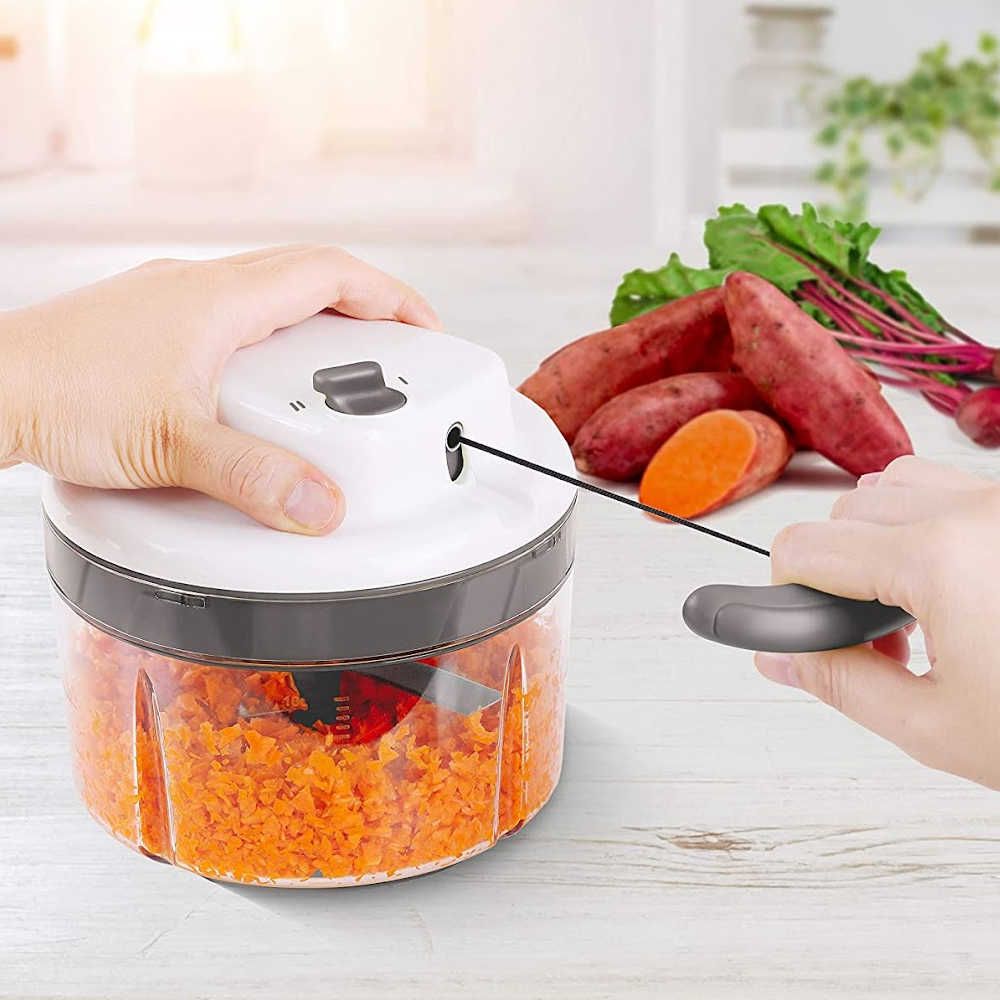
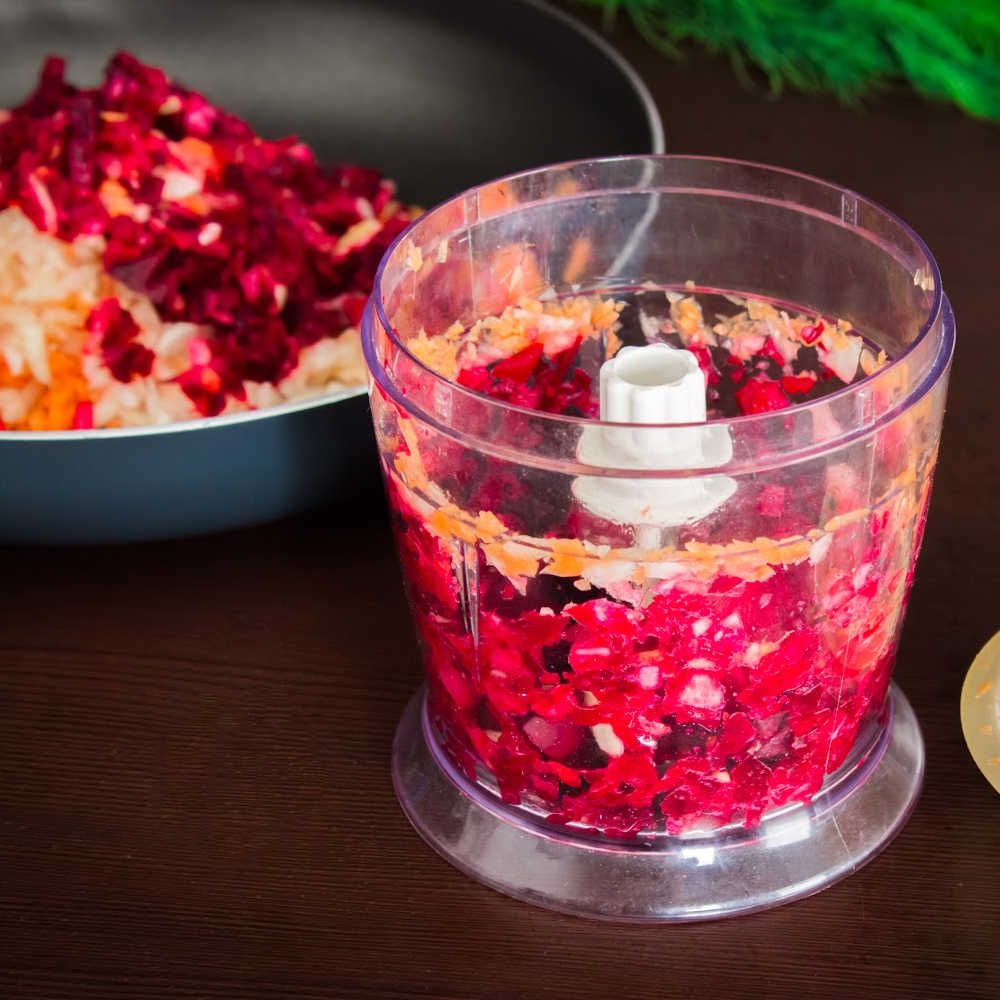
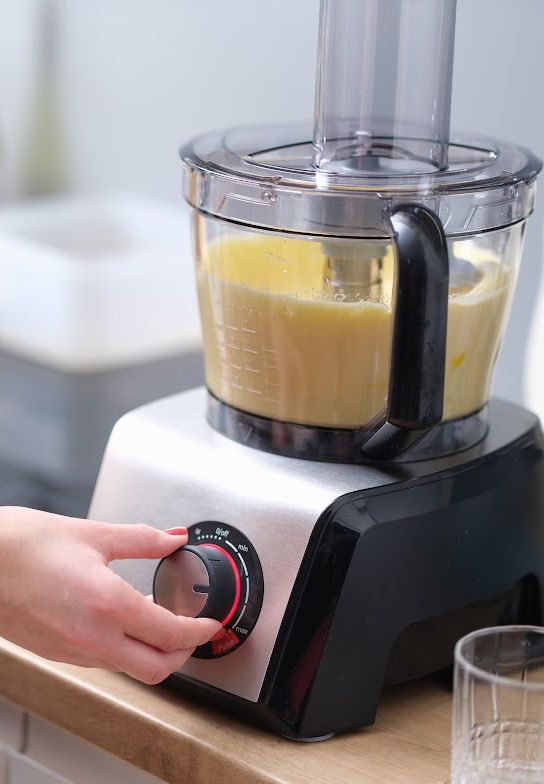
What Is A Juicer?
A juicer is an appliance that is used to extract juices from vegetables and fruits, to create healthy drinks. It divides the juice from the pulp, leaving a clear liquid that is easy to drink.
- Juicers offer the advantage of just juice extraction, leaving the pulp and fiber behind. This makes it easier for the body to absorb the nutrients.
- The typical juicer has a feed chute, a blade or crushing mechanism, and a strainer to separate the juice from the pulp.
- There are 3 types of juicers: citrus juicers, centrifugal juicers, and masticating juicers. Each type of juicer has its advantages and disadvantages.
- Centrifugal juicer: fast and high-powered; it extracts juice from produce by grinding them to a pulp, using a spinning metal blade, and then extracting the juice by spinning the pulp in a strainer.
- Masticating juicer: also called a "slow juicer", uses a slower process to extract juice, by crushing the produce before squeezing it through a strainer.
- Citrus juicer: is made specifically for making juice from citrus fruits like oranges, lemons, and limes.
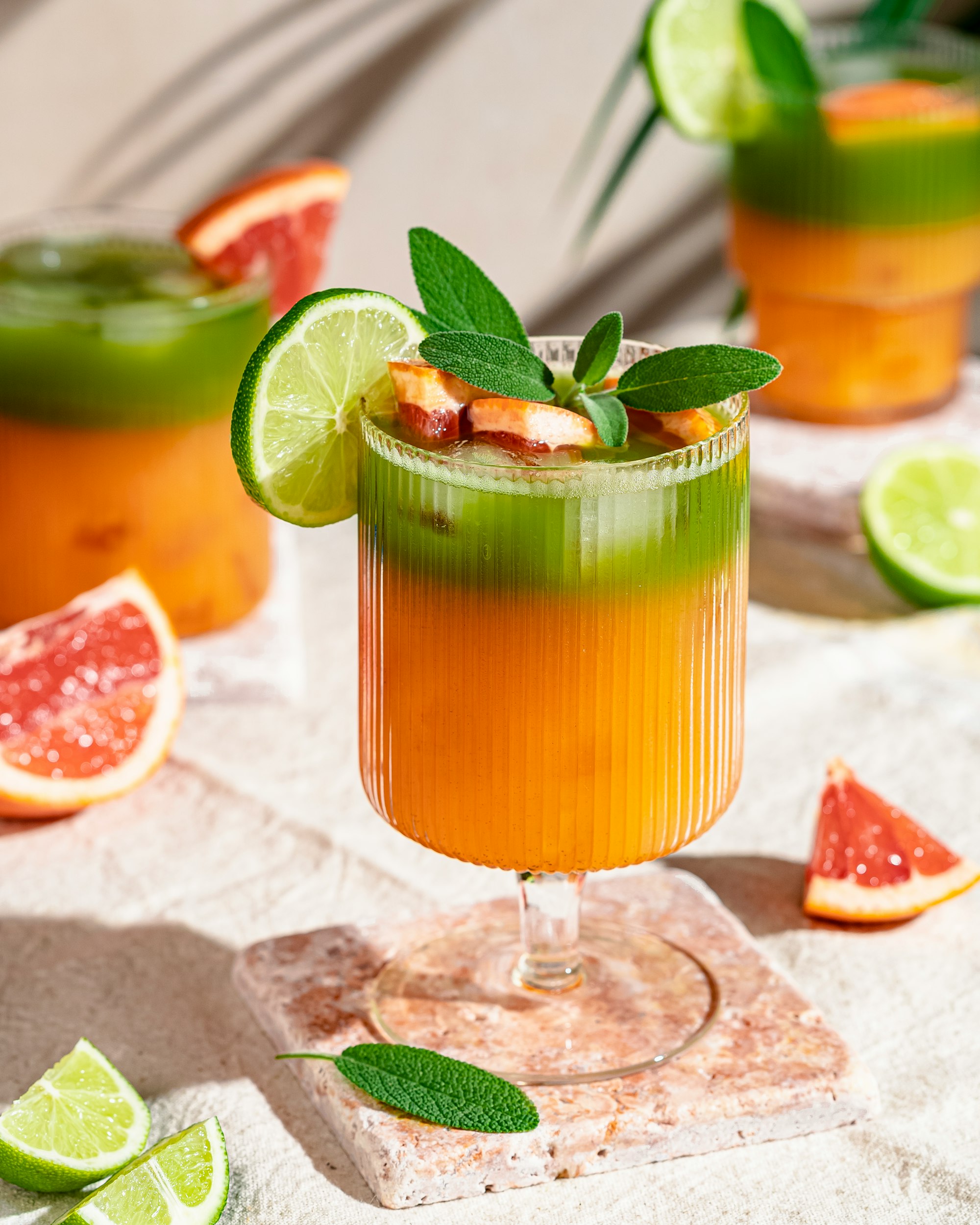
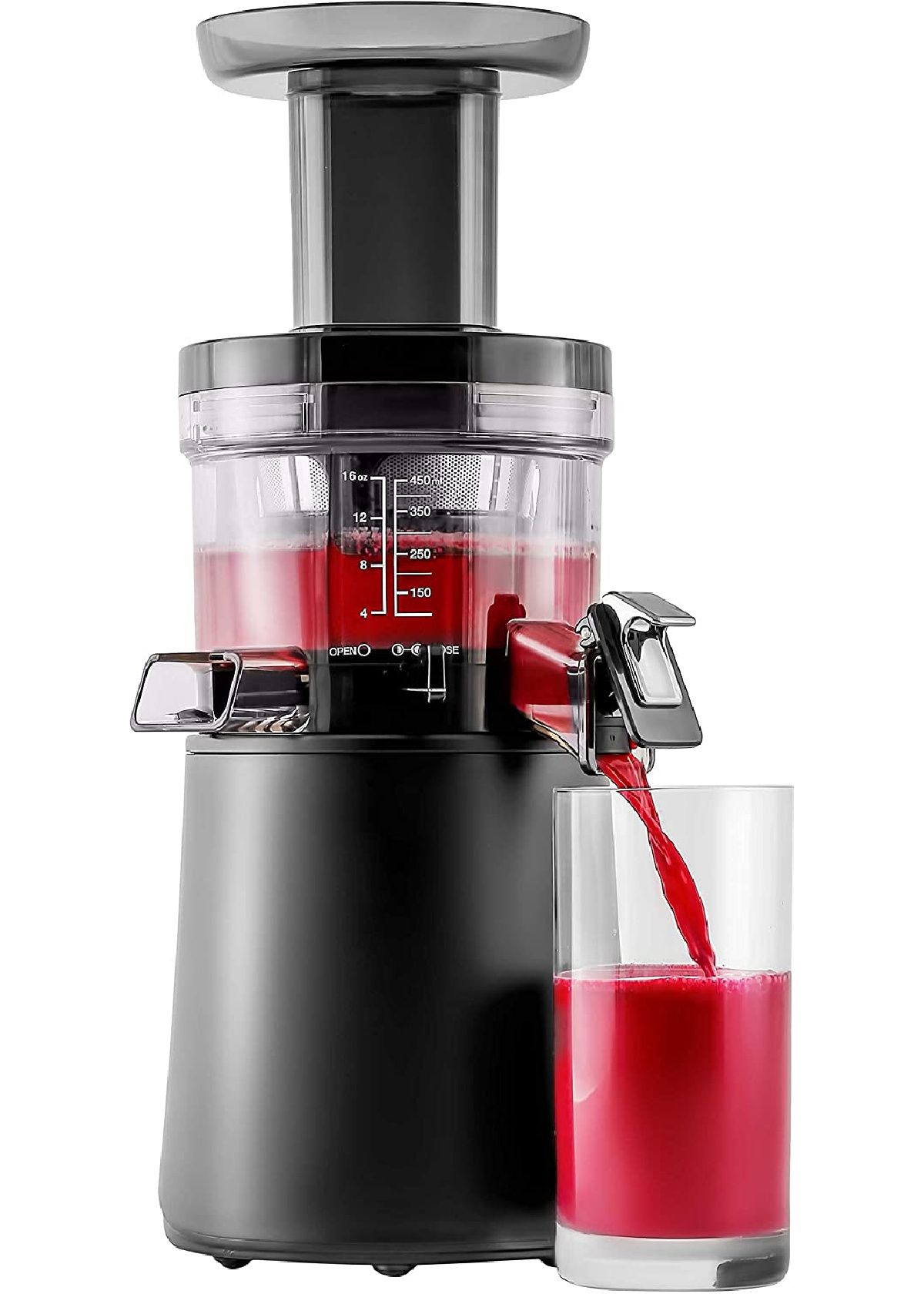
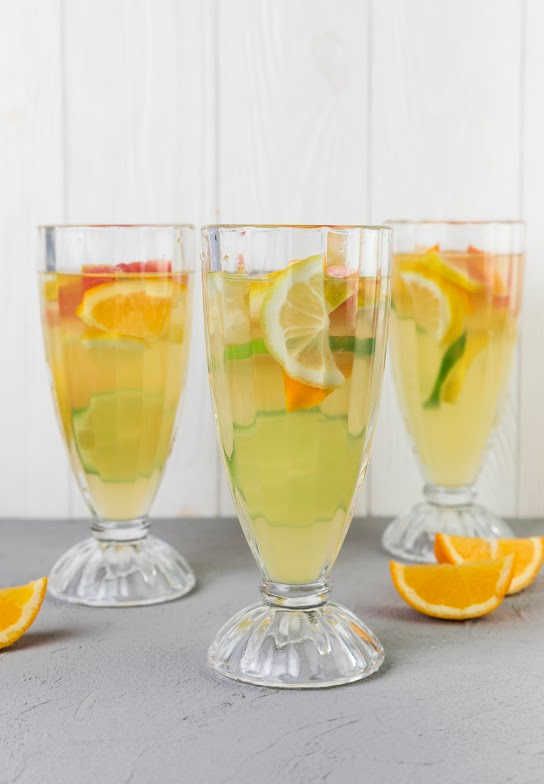
Food Processor: Pros & Cons
Pros:
- Versatile: A food processor can perform multiple functions, making it ideal for a wide range of cooking needs.
- Saves Time: A food processor can process ingredients quickly, saving you time.
- Easy To Use: Most food processors come with clear instructions on how to use them, making them exceptionally user-friendly.
- Large Capacity: A food processor can process a large volume of food at once, making it a great appliance for preparing meals.


Making Dough In A Food Processor
Cons:
- Not Suitable For Juicing: A food processor cannot extract juice from fruits and vegetables.
- Not Suitable For Soft Foods: It may not work well for soft foods like mango, banana, or avocado because they can get mashed rather than sliced. Only when the food processor comes with a blender, it can handle soft foods.
- Prone To Over-processing: It's essential to be careful as over-processing can result in mushy and unevenly chopped ingredients.
- Noisy: Food processors can be quite noisy when in use. If it has a blender, it makes a noise when crushing ice cubes.
Juicer: Pros & Cons
Pros:
- Nutritious: Juicing extracts nutrients from vegetables and fruits, providing essential vitamins and nutrients in an easy-to-drink form.
- Variety: Juicing allows you to experiment with a wide variety of fruits and vegetables in your diet.
- Easy To Use: A juice maker is easy to use and can quickly produce nutrient-rich drinks.
- Easy To Digest: Juicing removes fiber and pulp, making it easy for the body to absorb the nutrients, an excellent addition to any healthy lifestyle.

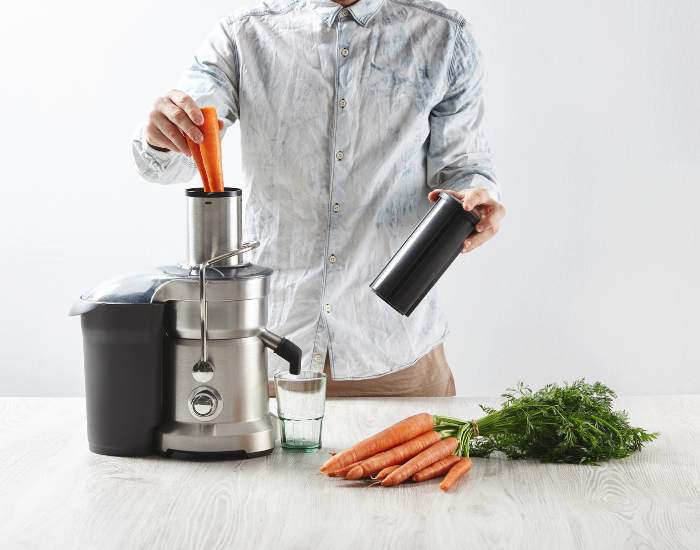

Making Carrot Juice In A Juicer
Cons:
- Expensive: Juicers can be more expensive than food processors, and the more advanced models can cost a lot of money.
- Limited Functionality: Juicers are solely meant for juicing fruits and vegetables only, making them unsuitable for other food items.
- Time-Consuming: Juicing can be time-consuming, especially when cleaning the juicer after use.
- Hard To Clean: Juicers can be difficult to clean as the blades and strainers need special care when cleaning.
Juicer vs Food Processor FAQs
Here are some of the frequently asked questions related to food processors and juicers to help you when picking one.
Can you chop fruit in a food processor?
Except for citrus fruits, you can chop most other (peeled) fruits in a food processor. It is best to keep the fruit pieces small and cut into even sizes before adding them to the food processor for chopping.
The food processor blades should be sharp enough to cut through the fruit without mashing it.
It is also important to ensure that the fruit pieces are not too large for the food processor. Otherwise, it can cause damage to the blades or make processing difficult.
Can frozen fruit go in a food processor?
You can blend frozen fruit in a food processor. However, you should be aware that if the fruit is too hard or too big, it can damage or strain the motor of the food processor.
- Make sure to cut the fruit in small parts and remove kernels and peels.
- Be aware that the food processor's mixing bowl has a wide opening, meaning that things can get messy when you blend too fast.
- So if blending frozen or fresh fruit and making milkshakes and smoothies is what you want, a powerful blender is a much better choice.
- With its pitcher and lid, it is designed for this purpose, while it can also handle nuts, coffee beans, and ice blocks - things a food processor cannot do.
Can frozen fruit go in a juicer?
You should not put frozen fruit in a juicer as it may damage or strain the motor of the juicer.
Frozen fruit (and also, frozen veggies) should be defrosted before adding it to a juicer so that the juice can be extracted properly. The best instrument to blend frozen fruit is a blender.
So when a food processor comes with a blender, it can easily do the job.
Can a food processor be used as a juicer?
A food processor is not designed to extract juice from vegetables and fruits. It can only chop, shred, slice, blend, mix, and puree food items. If you want to make juice, then a juicer is the best option.
Can you juice lemons in a food processor?
You cannot use a food processor to extract juice from lemons. A juicer is the best option as it is specifically designed for extracting juice from citrus fruits.
Can you make orange juice in a food processor?
You cannot make orange juice in a food processor. A juicer is the only appliance that can extract juice from citrus fruits like oranges.
Can I use a food processor to juice apples?
You cannot use a food processor to juice apples. A cold press juicer is the best option for extracting juice from apples.
Can you juice celery in a food processor?
You cannot use a food processor to extract juice from celery. A cold press juicer is the only appliance that can effectively make celery juice by separating the juice from the pulp and fiber of celery.
Do you put whole oranges in a juicer?
You can put whole oranges in a juicer. However, it is recommended to cut the oranges into smaller pieces to make it easier for the juicer to extract the juice.


Making Juices In A Cold Press Juicer
Tips & Tricks
What not to do with a food processor?
- You should not use a food processor to grind hard items like coffee beans or spices.
- It is incapable of extracting juice from fruits and vegetables.
- You should not blend hot ingredients in a food processor as it can damage the blades.
- Do not use metal utensils or hard objects to clean the blades of a food processor as it can damage them.
What not to do with a juicer?
- You should not put hard items like ice cubes or nuts in a juicer as this can damage the blades.
- Do not attempt to make smoothies in a juicer as this can clog the blades. (Smoothies you make with a blender.)
- Do not put fibrous or starchy vegetables like potatoes or yams in a juicer as this can result in a sticky mess.
- Do not overfill the juicer as this can cause it to clog and make a mess.
- Do not forget to clean the juicer right after use. Apart from the fact that pulp and fibers tend to stick to the machine, this makes it hard to clean, while it can also lead to the growth of bacteria.
Both food processors and juicers have unique features that can cater to your kitchen needs. Ultimately, it depends on the purpose of your usage.
A food processor is great for preparing various food items, while a juicer is ideal to extract liquid containing the essential nutrients present in vegetables and fruits.


We hope this guide has helped you understand the differences between a food processor and a juicer, the pros and cons of using each appliance, and which one to choose depending on your specific requirements.
Happy cooking and juicing!
Catchy Finds

